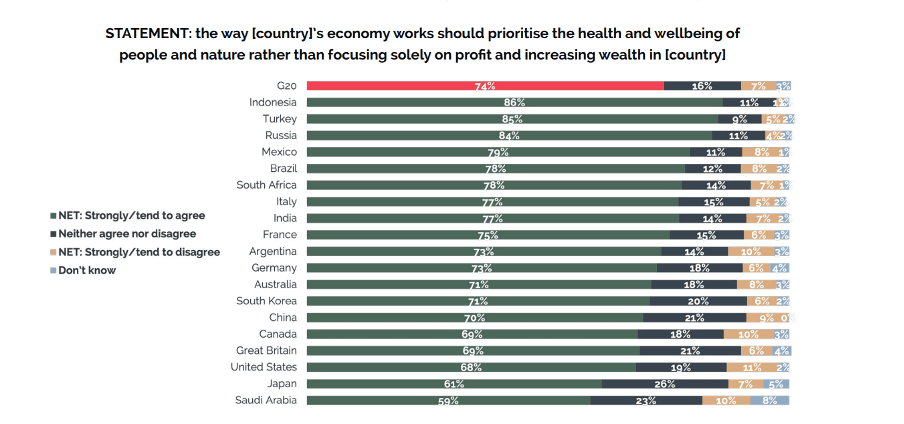
At the centre of the planetary emergency is a paradox. People agree that the world needs economic systems change. But many democratic societies are paralysed by divisions making it difficult for governments to act. Is there a way out?
One of the boldest proposals within Earth4All is to establish citizens’ assemblies on economic systems change in democratic countries. And there is a moment just around the corner perfectly formed to drive this agenda: this week’s Stockholm+50.
In recent years, citizens’ assemblies on a range of issues have been in the spotlight. They have been used to tackle deeply divisive questions, reduce polarisation and unite disparate groups. They have an important role in building trust and consensus in democracies.
Prominent examples include the Irish citizens’ assembly on abortion. The assembly is credited with helping Irish society navigate a deeply polarising issue. It led to a referendum and eventually a change in law. Another is the Canadian Citizens’ Assembly on Democratic Expression, a three-year initiative to look at impact of digital technologies on society.
Other examples are France’s Convention Citoyenne Pour le Climat, the climate citizens’ assembly and a similar UK assembly also focusing on climate. These had very different origins but both focused on a fair and just transformation of society. The French assembly was initiated by French president Emmanuel Macron in response to the Gilets Jaunes movement. The Climate Assembly UK was built from strong cross-party support and learned lessons from the 2018 Citizens’ Assembly on Social Care.
Citizens’ assemblies provide a different type of legitimacy that can complement parliamentary democracy. They create new ways for citizens to influence political decisions. According to the Citizens’ Climate Assemblies report (CAST 2021), “Citizens’ assemblies have a proven track record in enabling difficult questions to be resolved … and for inspiring creative and ambitious approaches for tackling social problems.”
But how does it work in practice? Citizens’ assemblies are designed to allow for a public debate outside of political parties. A randomly-selected group of citizens representing the full diversity of society are invited to participate in a process to explore an issue and formulate recommendations to government or parliaments. Often, independent experts are brought in to discuss problems and potential solutions.
In 2021, the first Global Assembly on climate was rolled out. It was co-designed by citizens, social movements, scientists and institutions. The organisers have a remarkable vision to create a permanent global citizens’ assembly that by 2030 has over ten million annual participants. They want such an assembly to be recognised for improving our ability to tackle global issues such as climate change, health and inequality.
While assemblies on climate can claim some success, I believe that broader assemblies on economic systems change are needed. There is strong public desire for economic systems change. For example, on the first weekend of the French climate citizens’ assembly, all groups raised the issue of the viability of the current economic system, according to Claire Mellier, a driving force behind the Global Assembly and an expert on deliberative processes. When exploring the levers and blockers of change, the assembly members stated that: “The obsession with growth, GDP indicators and the logic of profits is a blocker to the transition. The logic of financial interest takes precedence over the common interest”. But the design of the assembly left no space for participants to explore these questions.
More broadly, in 2021, Earth4All and partners published a major survey of the 20 largest economies that showed that three in four people (74%) across the G20 support reform of economic systems away from a singular focus on profit and growth towards a focus more on human wellbeing and the planet. This survey, and others, indicate that the political window may be opening up for conversations about post-growth or wellbeing economies. Experience so far indicates that these assemblies, designed well, can handle significant complexity.

What could citizens’ assemblies on economic systems change realistically achieve? I think the goal of such an assembly should not be detailed technocratic policy prescriptions. Unprecedented cooperation within societies is needed to transform economies to operate within planetary boundaries. But the mechanisms to achieve cooperation and collective decision-making in democratic societies are under stress. Gross inequality in wealthy nations is one cause. Democracy is slipping backwards. The Global State of Democracy 2021 report highlights that the principle of democracy is eroding at an alarming rate in many countries. This goes hand in hand with a rise in authoritarianism. This is creating more divided societies when we need to cooperate.
So the goal of citizens’ assemblies could be to help build bridges between political parties to unite around a common agenda for the greater good. They bring new voices to the table. They help highlight the need for fair and just policies. And they could create a new societal narrative around transformation.
Stockholm+50 comes at a critical juncture for humanity. We need to see the fastest economic transformation in history in the next decade to reduce risk of destabilising critical parts of the planet.
Citizens’ assemblies on economic systems change are one of the most promising ideas to ensure that all benefit, and so support, the transformation.
It may also provide a powerful mechanism to explore complex societal issues such as economic systems change. A process could be developed to explore trade offs between competing priorities. Or explore the role of increasing inequality in society and how this links to lack of trust in governance systems.



